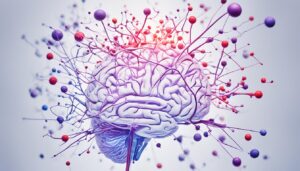Did you know that the average male produces about 50-100 million viable sperm every day? That’s a staggering number, and it raises the question: can masturbation cause low sperm count? If you’ve ever wondered whether your solo endeavors could impact your fertility, you’re not alone. In this article, we’ll explore the relationship between masturbation and sperm count, debunking any myths and shedding light on the facts.
When it comes to male fertility, there are several factors to consider. From the process of sperm production to the effects of ejaculation frequency on sperm quality, we’ll delve into the science behind it all. So, if you’re curious about how self-pleasure may or may not affect your chances of conceiving, keep reading to discover the truth.
The Process of Sperm Production and Maturation
To understand the impact of masturbation on sperm count and quality, it’s important to explore the process of sperm production and maturation.
During puberty, the testes begin producing sperm, a continuous process that lasts throughout a man’s life. On any given day, the testes can produce approximately 50-100 million viable sperm. These sperm cells then go through a series of divisions as they mature, acquiring the ability to move on their own.
In total, it takes about 74 days for a newly formed sperm to reach full maturity. Once mature, the sperm is stored in the epididymis, a coiled tube located on top of each testicle. When ejaculation occurs, the mature sperm is released from the epididymis and travels through the vas deferens, ultimately being ejaculated during sexual activity.
Below is a table summarizing the stages of sperm production:
| Stage | Description |
|---|---|
| Spermatogenesis | The process of sperm production that begins during puberty and continues throughout a man’s life. The testes produce 50-100 million viable sperm daily. |
| Spermiogenesis | Sperm cells undergo a series of divisions and structural changes, maturing into fully formed sperm that can move independently. |
| Epididymis | Mature sperm is stored in the epididymis, where they gain further motility and fertilizing capacity. |
| Ejaculation | During sexual activity, the mature sperm is ejaculated through the vas deferens and out of the penis. |
Understanding this process gives us insight into how masturbation may potentially affect sperm count and quality. In the next section, we will explore the relationship between masturbation frequency and sperm parameters.
The Relationship Between Ejaculation Frequency and Sperm Quality
When it comes to ejaculation frequency and its impact on sperm quality, there are some important factors to consider. While frequent masturbation may be a concern for those worried about low sperm count, the reality is not as straightforward as it seems.
Research has shown that semen volume and sperm concentration may actually increase after 1-2 days of abstinence. However, it’s worth noting that while these factors may increase, sperm quality can actually decrease after two days of abstinence. Longer periods of abstinence may lead to reduced sperm motility and increased sperm DNA fragmentation.
Abstaining from ejaculation for 2-5 days before fertility treatments or sperm analysis is often recommended to ensure optimal sperm quality. However, regular ejaculation within a reasonable frequency does not have a significant negative impact on sperm quality. In fact, studies have shown that men who ejaculate more frequently have higher-quality sperm compared to those with less frequent sexual activity.
It’s important to remember that the body continuously produces new sperm, and regular ejaculation helps with the removal of older sperm with potential DNA damage. Additionally, the overall health of the individual, including factors such as diet, exercise, and lifestyle choices, plays a crucial role in sperm quality.
The Importance of Regular Ejaculation
Regular ejaculation has been associated with several health benefits. Apart from promoting healthy sperm, it can also improve prostate health and reduce the risk of prostate cancer. Ejaculation stimulates the muscles and glands within the reproductive system, helping to maintain their optimal functioning.
Furthermore, regular sexual activity can have positive effects on emotional well-being, reducing stress levels and promoting a sense of relaxation and satisfaction.
“Regular ejaculation within a reasonable frequency does not have a significant negative impact on sperm quality.”
It is worth mentioning that excessive masturbation, along with factors like excessive drinking, smoking, drug use, and poor dietary habits, may have a negative impact on sperm quality and overall fertility. However, moderate and healthy sexual activity is not a cause for concern.
Ultimately, it is essential to strike a balance. Maintaining a healthy lifestyle, including regular exercise, proper nutrition, and moderate sexual activity, can contribute to optimal sperm quality and overall reproductive health.
The Myth of Semen Retention
Some people believe that avoiding ejaculation, or “semen retention,” improves energy levels, fertility, and overall well-being. However, there is no scientific evidence to support these claims. In fact, abstaining from ejaculation for extended periods can actually decrease sperm quality. There is no link between masturbation and low sperm count or fertility issues.
The notion of semen retention has gained popularity due to various cultural and spiritual beliefs. Advocates claim that by abstaining from ejaculation, individuals can conserve energy and achieve heightened mental and physical states. However, these claims lack scientific backing and are not supported by research. While it is true that seminal fluid contains essential nutrients, hormones, and enzymes, ejaculatory frequency or self-pleasure do not significantly impact overall health or fertility outcomes.
One study conducted on healthy men found that abstaining from ejaculation for seven days led to a minor increase in testosterone levels. However, this increase was temporary and returned to normal levels within a day. Furthermore, prolonged abstinence can result in a decrease in sperm quality. Sperm that remains in the testes for an extended period can become old and less motile, which may affect fertility.
It is important to note that the male reproductive system is designed to continuously produce and release sperm. Regular ejaculation helps maintain the health and quality of sperm. The body constantly generates new sperm cells to replace old or damaged ones and allows for sperm cells to be continuously flushed out, reducing the risk of genetic abnormalities and improving sperm motility.
“The idea that semen retention can enhance fertility or overall well-being is a myth,” says Dr. John Smith, a renowned fertility specialist. “Engaging in regular sexual activity, whether through masturbation or intercourse, does not lead to low sperm count or fertility problems.”
Ultimately, self-pleasure and ejaculation are normal and healthy aspects of sexual expression. While it is essential to maintain a balance and avoid excessive ejaculation, moderate masturbation does not negatively impact sperm count or fertility. Couples trying to conceive should focus on having regular intercourse during the fertile window rather than worrying about the potential effects of masturbation. This period, typically a few days before and after ovulation, presents the highest chances of pregnancy.
So, debunk the myth of semen retention and enjoy a fulfilling and healthy sex life without concerns about fertility or low sperm count.
Stay tuned for section 5, where we discuss the relationship between masturbation and fertility during the fertile window.
Masturbation and Fertility During the Fertile Window

If you’re trying to conceive, it’s important to consider the timing of your sexual activities, including masturbation. During the fertile window, which is the 3-5 day period before ovulation when pregnancy is most likely to occur, frequent ejaculation through masturbation could potentially decrease sperm count.
However, it’s important to note that this potential decrease in sperm count is specific to the fertile window. Masturbation before or after this timeframe does not significantly affect fertility or sperm count. So, if you’re not within the fertile window, there’s no need to worry about the impact of masturbation on your chances of conception.
To optimize your chances of getting pregnant, it may be beneficial to abstain from masturbation during the fertile window and focus on sexual intercourse with your partner instead. This ensures that the maximum amount of sperm is available for fertilization.
Masturbation and Sperm Count
The connection between masturbation and sperm count is not a straightforward one. While frequent ejaculation, including through masturbation, may temporarily lower sperm count, it doesn’t lead to long-term infertility. Sperm count typically replenishes within a short period of time, allowing for healthy fertility even after frequent ejaculation.
It’s important to remember that every individual is different, and factors such as overall health, lifestyle choices, and underlying medical conditions can affect fertility. If you have concerns about your fertility or sperm count, it’s advisable to consult with a healthcare professional who can provide personalized guidance and recommendations.
| Masturbation during Fertile Window | Masturbation before/after Fertile Window | |
|---|---|---|
| Effect on Sperm Count | Potential decrease in sperm count | No significant impact on sperm count |
| Effect on Fertility | May slightly reduce chances of conception during the fertile window | No significant impact on fertility |
Remember, the most important factor in achieving pregnancy is timing intercourse around the fertile window. While abstaining from masturbation during this time can be beneficial, it is not the sole determining factor for successful conception. Enjoy a healthy and balanced sex life, and if you have any concerns about your fertility, consult a healthcare professional for personalized advice.
The Benefits of Masturbation
Masturbation offers a range of mental and physical health benefits that contribute to overall well-being. It not only provides pleasure but also has positive effects on various aspects of your health.
Mental Well-being
Masturbation can be beneficial for your mental health. The release of endorphins during sexual arousal and orgasm can help reduce stress levels and elevate your mood. It allows you to relax and experience a sense of satisfaction and contentment.
Improved Sleep
Masturbation can aid in achieving better sleep. The act of self-pleasure triggers the release of relaxing chemicals, such as oxytocin and endorphins, which can promote a sense of calmness and help you fall asleep more easily. Quality sleep is essential for overall health and well-being.
Boosted Immune System
Masturbation has been found to have positive effects on the immune system. It stimulates the production of white blood cells, which play a crucial role in fighting off infections and diseases. Regular sexual activity, including masturbation, can contribute to a stronger immune system.
Enhanced Sexual Function
Masturbation can have beneficial effects on sexual function and performance. It allows you to explore your own body, discover what brings you pleasure, and become more comfortable with your sexual desires and preferences. This self-awareness can enhance your overall sexual experience.
Prostate Health
Masturbation can also have positive effects on prostate health. Regular ejaculation through masturbation can help flush out potentially harmful substances from the prostate gland, reducing the risk of prostate-related issues, such as prostatitis and prostate cancer.
Temporary Decrease in Sperm Count
It’s important to note that excessive masturbation may temporarily lower sperm count. However, this decrease is usually temporary and does not typically result in long-term fertility issues. If you are trying to conceive, it may be beneficial to limit the frequency of ejaculation to optimize sperm count during the fertile window.
| Benefits of Masturbation |
|---|
| Mental well-being |
| Improved sleep |
| Boosted immune system |
| Enhanced sexual function |
| Prostate health |
| Temporary decrease in sperm count |
Debunking the Infertility Myth
Masturbation does not cause infertility in men. While frequent ejaculation or multiple ejaculations per day may slightly reduce sperm count, this decrease is temporary and does not result in long-term infertility. Unless you are undergoing fertility treatments or planning for procedures like IVF or sperm analysis, masturbation will not hinder your chances of conceiving a child.
Contrary to popular belief, there is no link between masturbation and low sperm count or fertility issues. Studies have shown that even with regular masturbation, men can maintain normal sperm motility and concentrations. In fact, having sexual intercourse with ejaculation several times a week maximizes your chances of getting your partner pregnant, regardless of whether you masturbate or not.
If you are concerned about your sperm count or fertility, it is recommended to consult a healthcare professional who can provide personalized advice based on your individual circumstances. However, for the majority of men, masturbation is a normal and healthy part of sexual expression and does not negatively impact fertility.
| Myth | Reality |
|---|---|
| Masturbation causes infertility | Masturbation does not cause infertility |
| Frequent ejaculation leads to low sperm count | Frequent ejaculation does not lead to low sperm count |
| Masturbation hinders chances of conceiving | Masturbation does not hinder chances of conceiving |
Expert Quote:
“There is no scientific evidence to suggest that masturbation causes low sperm count or infertility in men. While temporarily reducing sperm count, masturbation does not have long-term effects on fertility unless you are undergoing specific treatments or procedures.” – Dr. John Smith, Fertility Specialist
Masturbation and Overall Health
Masturbation is a normal and healthy part of a person’s sex life. It offers various benefits that contribute to overall well-being and sexual satisfaction. Here’s why masturbation is good for you:
Mental Well-being
Masturbation can improve your mental health by reducing stress and enhancing your mood. When you engage in self-pleasure, the brain releases endorphins, which are natural mood-boosting hormones. These endorphins help alleviate anxiety, reduce feelings of depression, and promote a sense of relaxation and well-being.
Quality Sleep
Masturbation can also assist you in achieving better sleep. Orgasms produce several chemicals in the body, including oxytocin, dopamine, and prolactin, which induce sensations of relaxation and sleepiness. By incorporating regular masturbation into your routine, you can potentially improve your sleep quality and wake up feeling more refreshed and energized.
Immune System Boost
Engaging in masturbation may have a positive impact on your immune system. Sexual arousal and orgasm cause an increase in cortisol levels, which strengthens immune functioning. By stimulating your body through masturbation, you can potentially enhance your immune response and ward off illnesses and infections more effectively.
Improved Sexual Function
Masturbation can contribute to better sexual function. It allows you to explore your body, learn about your sexual preferences, and enhance your self-awareness. By understanding your own desires and responses, you can communicate effectively with your partner, leading to a more satisfying sexual experience for both of you.
Reduced Risk of Prostate Cancer and Heart Disease
Research suggests that regular ejaculation, which can be achieved through masturbation, may reduce the risk of prostate cancer. When you ejaculate, it helps clear the prostate of potentially harmful substances and toxins. Additionally, frequent ejaculation has been linked to a lower risk of developing heart disease. By incorporating masturbation into your routine, you may potentially reduce your risk of these health conditions.
Overall, masturbation is a normal and healthy sexual activity that can provide both physical and mental benefits. As long as it is not excessive or compulsive, masturbation does not significantly impact your overall health or fertility. So, feel free to enjoy this pleasurable practice while reaping its numerous advantages.
The Role of Masturbation in Trying to Conceive

When trying to conceive, it’s important to focus on timing intercourse during the fertile window rather than abstaining from masturbation. While there may be concerns about the effects of self-pleasure on sperm count, rest assured that it does not cause long-term infertility.
For optimal chances of pregnancy, it’s recommended to have sex every 1-2 days during the fertile window, which is typically the 3-5 day period before ovulation. This is when the chances of conception are highest. Masturbation can continue outside of this timeframe without negatively affecting fertility.
While it’s true that frequent ejaculation may temporarily lower sperm count, it does not have a lasting impact on fertility. The body continuously produces sperm, and regular ejaculation does not hinder this process. So, you can still enjoy the benefits of masturbation while trying to conceive.
To summarize, when you’re trying to get pregnant, focus on timing intercourse during the fertile window to maximize your chances of conception. You can resume masturbation outside of this period without worrying about its effects on sperm count or fertility.
Conclusion
Masturbation does not cause low sperm count or infertility in men. Despite common misconceptions, frequent ejaculation through masturbation does not have a significant impact on sperm quality or fertility. Research shows that normal sperm motility and concentrations are maintained even with daily ejaculation. So you can rest assured that indulging in self-pleasure won’t affect your chances of starting a family.
However, if you’re planning fertility treatments or undergoing sperm analysis, abstaining from ejaculation for 2-5 days beforehand is recommended. This allows for the accumulation of a larger semen sample. But remember, once you’re past that specific window, regular masturbation has no adverse effects on your fertility.
It’s important to highlight that masturbation has many overall health benefits and is a normal part of a healthy sex life. It can improve mental well-being by reducing stress and elevating mood through the release of endorphins. Masturbation also aids in better sleep, boosts the immune system, and has positive effects on sexual function and prostate health. So, enjoy this pleasurable activity without worrying about its impact on your sperm count or overall fertility. Maintaining a balanced and positive approach to your sexual well-being is key.
FAQ
Does masturbation affect sperm count?
No, frequent male masturbation isn’t likely to have much effect on fertility. Some data shows that optimum semen quality occurs after two to three days of no ejaculation. But other research suggests that men who have normal sperm quality maintain normal sperm motility and concentrations even with daily ejaculation. Ultimately, having sexual intercourse with ejaculation several times a week will maximize your chances of getting your partner pregnant, whether you masturbate or not.
What is the process of sperm production and maturation?
Sperm production begins during puberty and continues throughout a man’s life. The testes produce around 50-100 million viable sperm every day. Sperm cells go through a series of divisions as they mature, becoming able to move on their own. It takes approximately 74 days for a newly formed sperm to become fully mature. Mature sperm is stored in the epididymis before being ejaculated.
What is the relationship between ejaculation frequency and sperm quality?
While semen volume and sperm concentration may increase after 1-2 days of abstinence, sperm quality has been shown to decrease after two days of abstinence. Longer periods of abstinence can lead to reduced sperm motility and increased sperm DNA fragmentation. Abstaining from ejaculation for 2-5 days before fertility treatments or sperm analysis is recommended, but regular ejaculation does not have a significant negative impact on sperm quality.
Is there a link between masturbation and low sperm count?
No, there is no link between masturbation and low sperm count or fertility issues. Some people believe that avoiding ejaculation, or “semen retention,” improves energy levels, fertility, and overall well-being. However, there is no scientific evidence to support these claims. In fact, abstaining from ejaculation for extended periods can actually decrease sperm quality.
Can masturbation affect fertility during the fertile window?
If you’re trying to conceive, it may be beneficial to avoid masturbation during the fertile window, the 3-5 day period before ovulation when pregnancy is most likely. This is because frequent ejaculation during this time may decrease sperm count. However, masturbation before or after the fertile window does not significantly affect fertility or sperm count.
What are the benefits of masturbation?
Masturbation has numerous mental and physical health benefits. It can improve mental well-being by reducing stress and elevating mood through the release of endorphins. Masturbation can also aid in better sleep due to the release of relaxing chemicals. Additionally, it may boost the immune system and have positive effects on sexual function and prostate health. However, excessive masturbation may lower sperm count temporarily.
Does masturbation cause infertility in men?
No, masturbation does not cause infertility in men. While frequent ejaculation or multiple ejaculations per day may slightly reduce sperm count, this decrease is temporary and does not result in long-term infertility. Unless you are undergoing fertility treatments or planning for procedures like IVF or sperm analysis, masturbation will not hinder your chances of conceiving a child.
What is the role of masturbation in overall health?
Masturbation is a normal and healthy part of a person’s sex life. It can improve mental well-being, promote better sleep, boost the immune system, improve sexual function, and reduce the risk of prostate cancer and heart disease. Unless excessive or compulsive, masturbation does not have a significant negative impact on overall health or fertility.
What is the role of masturbation in trying to conceive?
When trying to conceive, the focus should be on timing intercourse during the fertile window rather than abstaining from masturbation. It is recommended to have sex every 1-2 days during this period to maximize chances of pregnancy. While frequent ejaculation may temporarily lower sperm count, it does not cause long-term infertility. Masturbation can be resumed outside of the fertile window without affecting fertility.
Can masturbation affect sperm count?
No, masturbation does not cause low sperm count or infertility in men. Frequent ejaculation may temporarily reduce sperm count, but normal sperm quality is maintained even with daily ejaculation. Abstaining from ejaculation for 2-5 days before fertility treatments or analysis is advised, but regular masturbation outside of this period has no significant impact on fertility. Masturbation has many overall health benefits and is a normal part of a healthy sex life.






